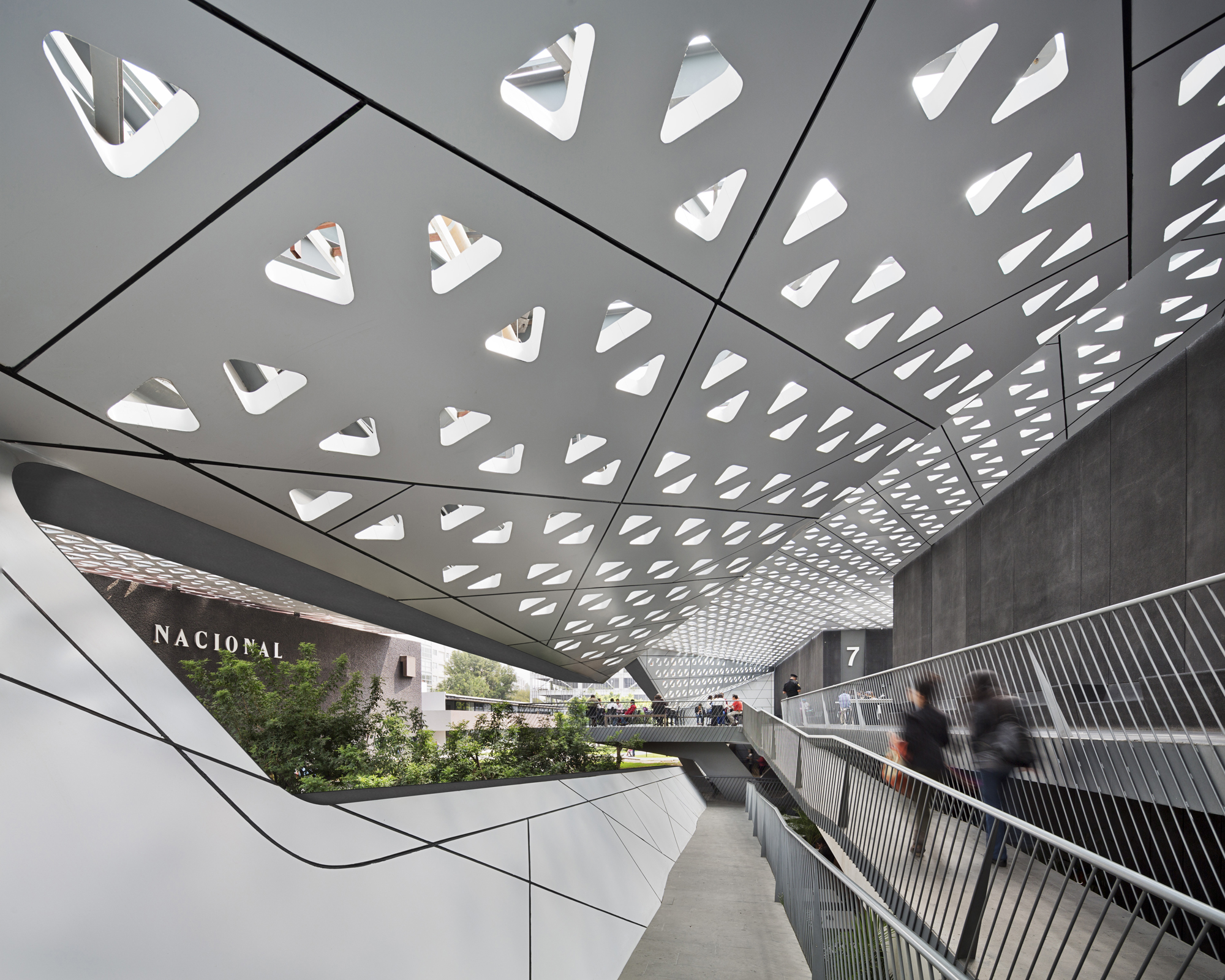
Photo © Paul Rivera Courtesy of Rojkind Arquitectos
Cineteca Nacional expands and renovates an existing film complex, incorporating additional archive space and four more screening rooms while reclaiming part of the site as a public space.
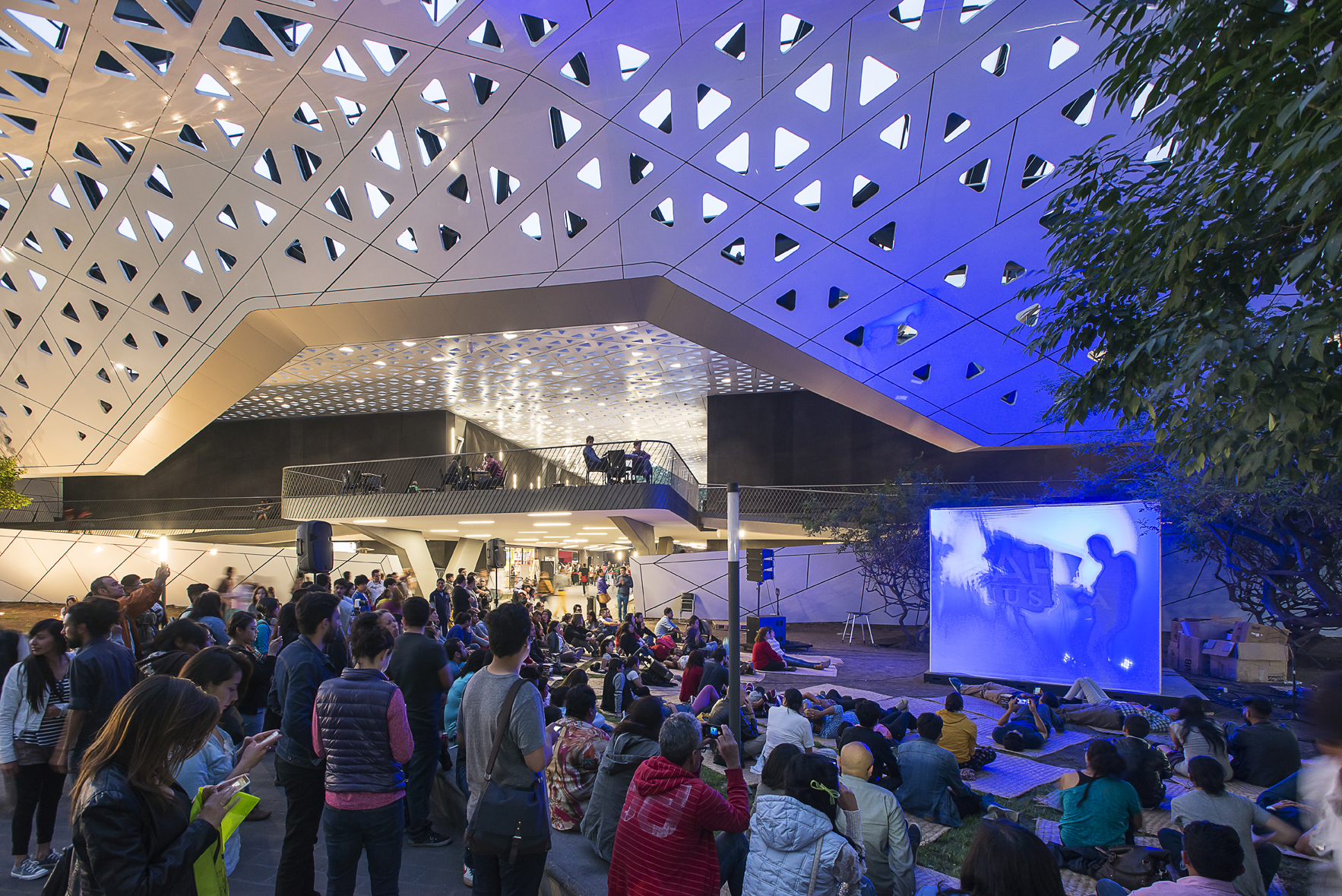
Photo © Jaime Navarro Courtesy of Rojkind Arquitectos
Alfredo Hernández (Project Manager)
Diego Leal (Project Manager)
Gerardo Villanueva (Construction Manager)
Barbara Trujillo (Site Supervision)
Rodrigo Medina (Computational Design)
Arie Willem de Jongh (Computational Design)
Andrea León (Office Manager)
Adrian Aguilar
Isaac Smeke
Cynthia Cárdenas
Rafael Cedillo
Alonso de la Fuente
David Guardado
Birgit Hammer
Victor Martínez
Dolores Martínez Robles
Juan Manuel Ortuño
Rosalba Rojas
Philipp Schlauch
David Stalin
Beatriz Zavala
Monique Rojkind (Marketing)
Interior Design
Esrawe Estudio: Héctor Esrawe, Miguel Baltazar, Jorge Bracho, Omar Cortez, Arturo Gasca and Rodrigo López
Interior Design
Alberto Villareal Bello, Isaac Smeke, Felipe Castañeda, Emilia Franssen and Alejandra Hernández
Structural Engineer
CTC Ingenieros
Roof Structural Engineer
Studio NYL
MEP
IPDS
Landscape Consultant
Ambiente Arquitectos
A/V Consultant
Auerbach Pollock Friedlander
Acoustical Consultant
Seamonk
Lighting Consultant
Ideas y Proyectos en Luz
Graphic Design
Citrico + Welcome Branding
Builder
Consorcio de Ingenieros Constructores y Consultores , S.A. de C.V.
Renderings
Glessner Group
Rojkind Arquitectos
Photography
Jaime Navarro
Paul Rivera

Photo © Paul Rivera Courtesy of Rojkind Arquitectos
Located in the southern quadrant of Mexico City, the National Film Archive and Film Institute of Mexico is home to the most important film heritage of Latin America. Its campus occupied an underutilized site of considerable dimensions within the strangled town of Xoco. This historic town, once surrounded by agricultural land, now sits deep within the urban sprawl and faces extinction
due to economic and political pressures from developers and municipal authorities which
covet its privileged location.
The existing complex dated from 1982, when a fire destroyed part of the campus and most of its archive, and was a “temporar y” facility never well suited for its purpose. Additionally,
thousands of people cross the grounds daily as they walked to and from one of the city’s nearby
metro station, Estación Metro Coyoacan.
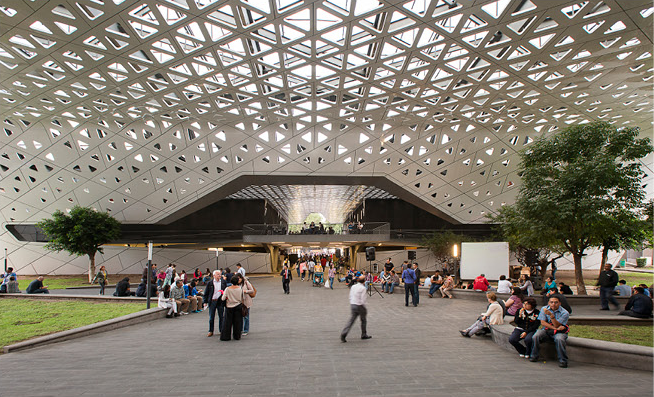
Photo © Jaime Navarro Courtesy of Rojkind Arquitectos
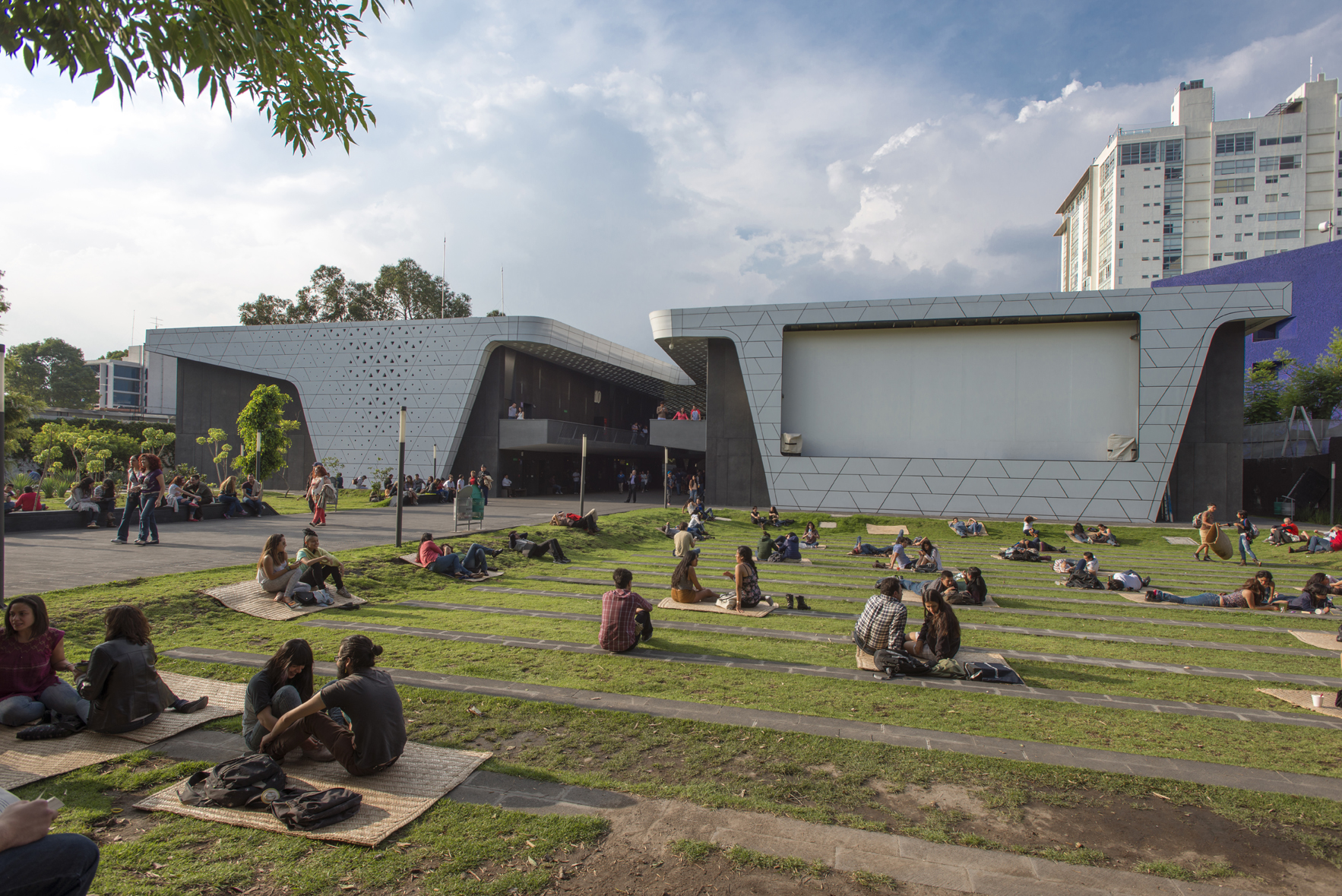
Photo © Jaime Navarro Courtesy of Rojkind Arquitectos
Facing total renewal, Cineteca’s original project brief included the expansion and renovation of
the existing complex incorporating additional vault space and four more screening rooms. But in response to the immediate urban condition,
additional restorative work needed to be done
to reclaim part of the site as public space, give relief to the dense new-developmentfilled surroundings of Xoco and accommodate
the constant flow of pedestrians and casual visitors.
First, surface parking was consolidated into a six stor y structure freeing 40% of the site. Then the pedestrian friendly “back entrance”, located
across the street from the historic town’s cemetery, was reactivated –70% of Cineteca
patrons use public transportation and arrive by foot. The reclaimed space now houses the
new program organized along two axes, one perpendicular to the street of Real Mayorazgo becoming the main pedestrian entrance and the other perpendicular to Av. México-Coyoacán
for both car and pedestrian access.
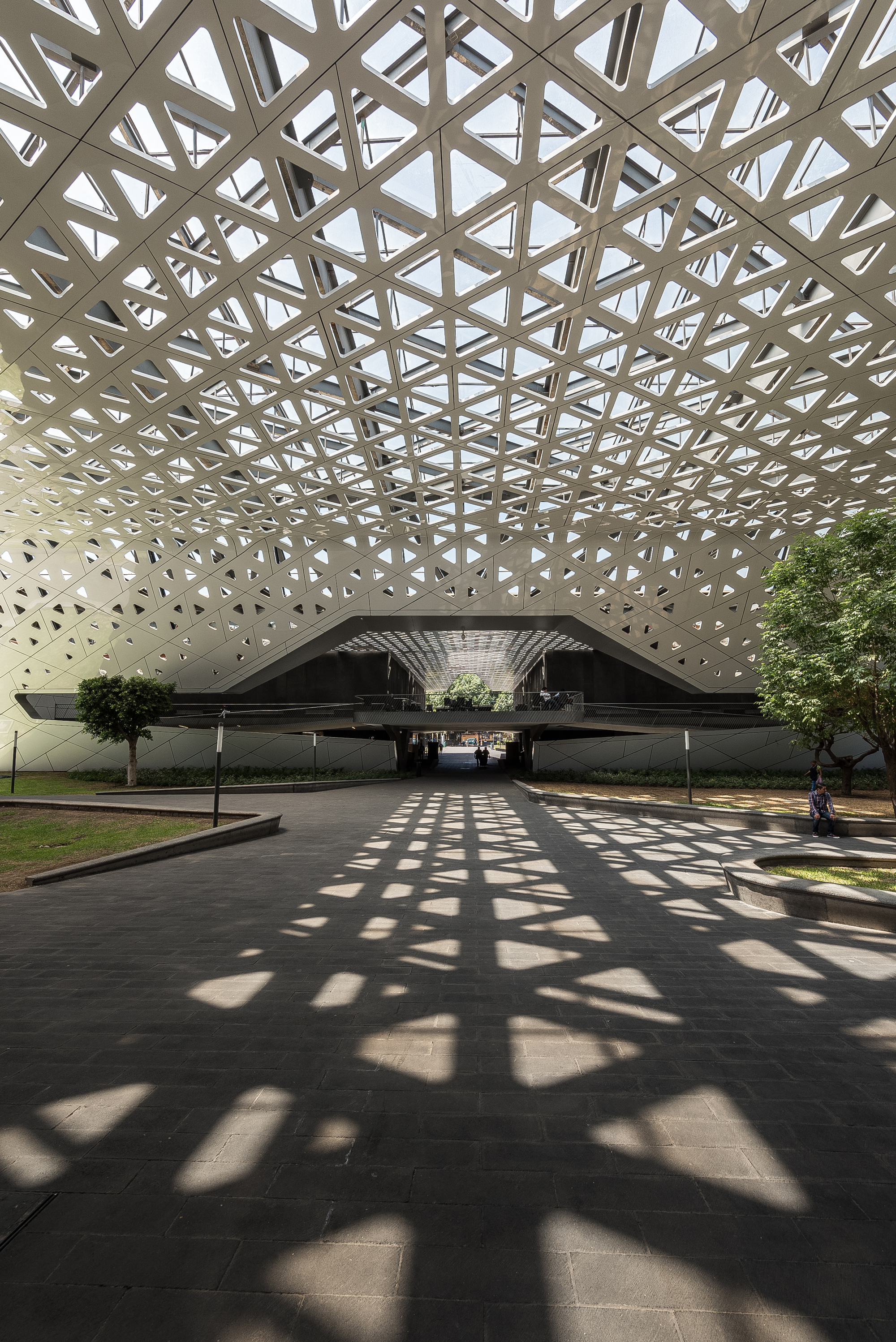
Photo © Jaime Navarro Courtesy of Rojkind Arquitectos
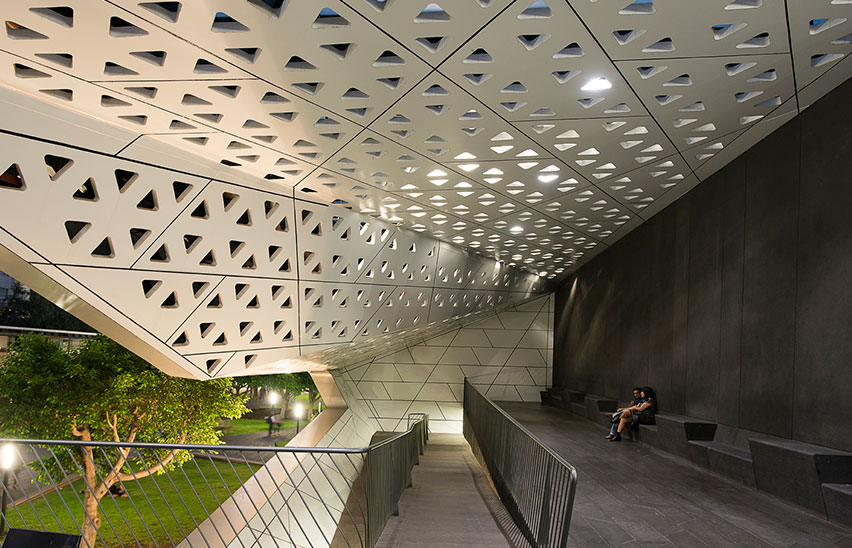
The axes intersection became a new 80m x
40m public plaza sheltered from the weather
P R O J E C T
CINETECA NACIONAL SIGLO XXI
© Rojkind Arquitectos, photo by Paul Rivera
© Rojkind Arquitectos, photo by Paul Rivera
© Rojkind Arquitectos, photo by Paul Rivera
© Rojkind Arquitectos, photo by Paul Rivera
A r c h i t e c t u r a l
Project
rojkind arquitectos
Michel Rojkind
[Founding Partner]
Gerardo Salinas
[Partner]
Team:
Gerardo Villanueva,
Barbara Trujillo,
Alfredo Hernández,
Diego Leal, Andrea
León, Rodrigo
Medina, Philipp
Schlauch, Beatriz
Zavala, Birgit
Hammer, Juan
Manuel Ortuño,
David Stalin, Alonso
de la Fuente, Rafael
Cedillo, Arie Willem
de Jongh, Victor
Martínez, Adrian
Aguilar, David
Guardado.
Media: Monique
Rojkind, Cynthia
Cardenas, Dolores
Robles, Rosalba
Rojas.
Interior DESIGN
Alberto Villareal
Bello (Principal)
Team:
Isaac Smeke, Felipe
Castañeda, Emilia
Franssen, Alejandra
Hernández.
Esrawe Studio
[Collaboration]
s t r u c t u r a l
Engineer
CTC Ingenieros
r o o f S T R U C T U R E
engineer
Studio NYL
page
02
rojkind arquitectos
© Jaime Navarro
by a hovering canopy connecting the existing
complex with the new screening rooms. Clad in
composite aluminum panels, with varied size
triangular perforations, the roof structure wraps
around the new screening rooms and becomes
their façade. The sheltered space functions as
the foyer for the old and new screening rooms
and can accommodate additional program
options such as concerts, theater, exhibitions,
etc. “We didn’t want it to feel like you’re in
the lobby of a commercial cinema, we wanted
it to feel more like a university campus, with
ever ything floating in a park” says design
principal Michel Rojkind.
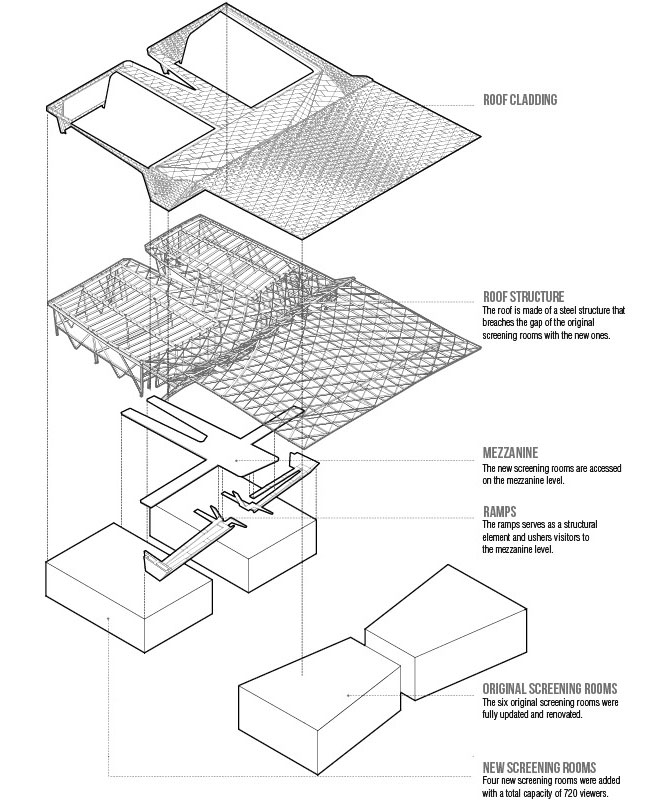
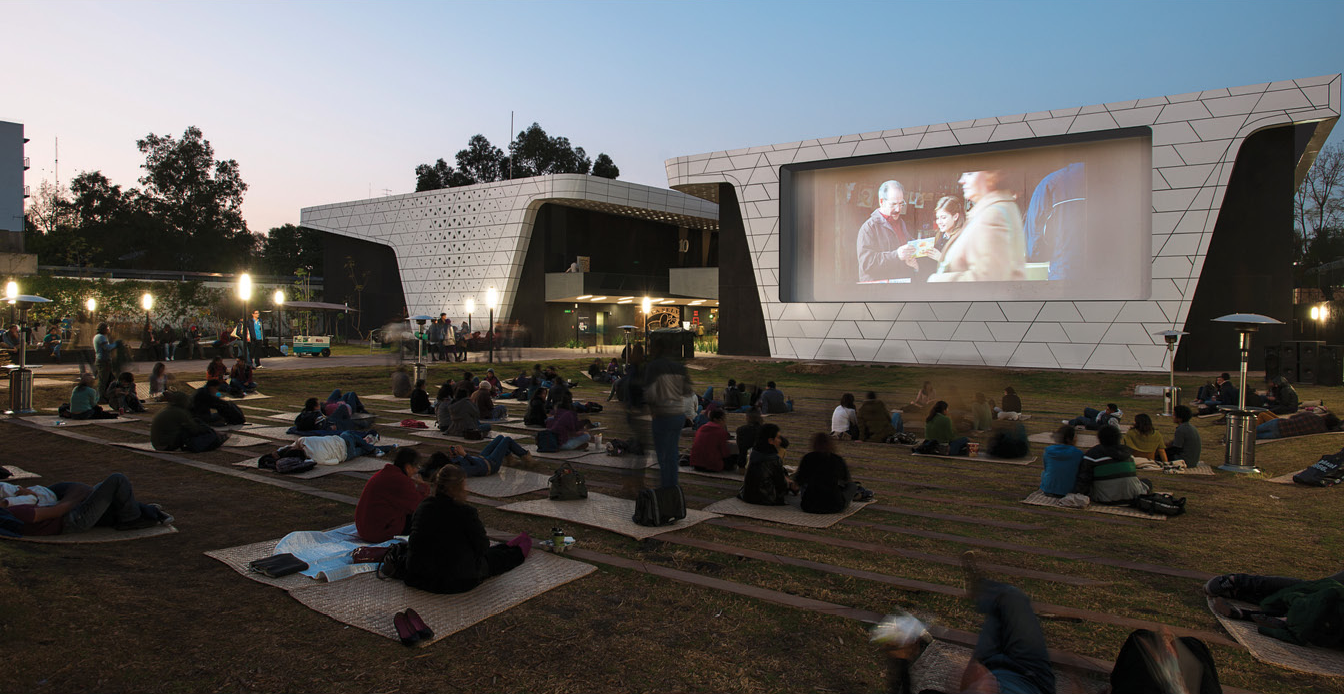
Photo © Jaime Navarro Courtesy of Rojkind Arquitectos
An outdoor amphitheater, extensive landscaping
and new retail spaces were added to the original
program expanding the possibilities for social
and cultural interaction and exchanges, and
giving the complex a university campus feel.
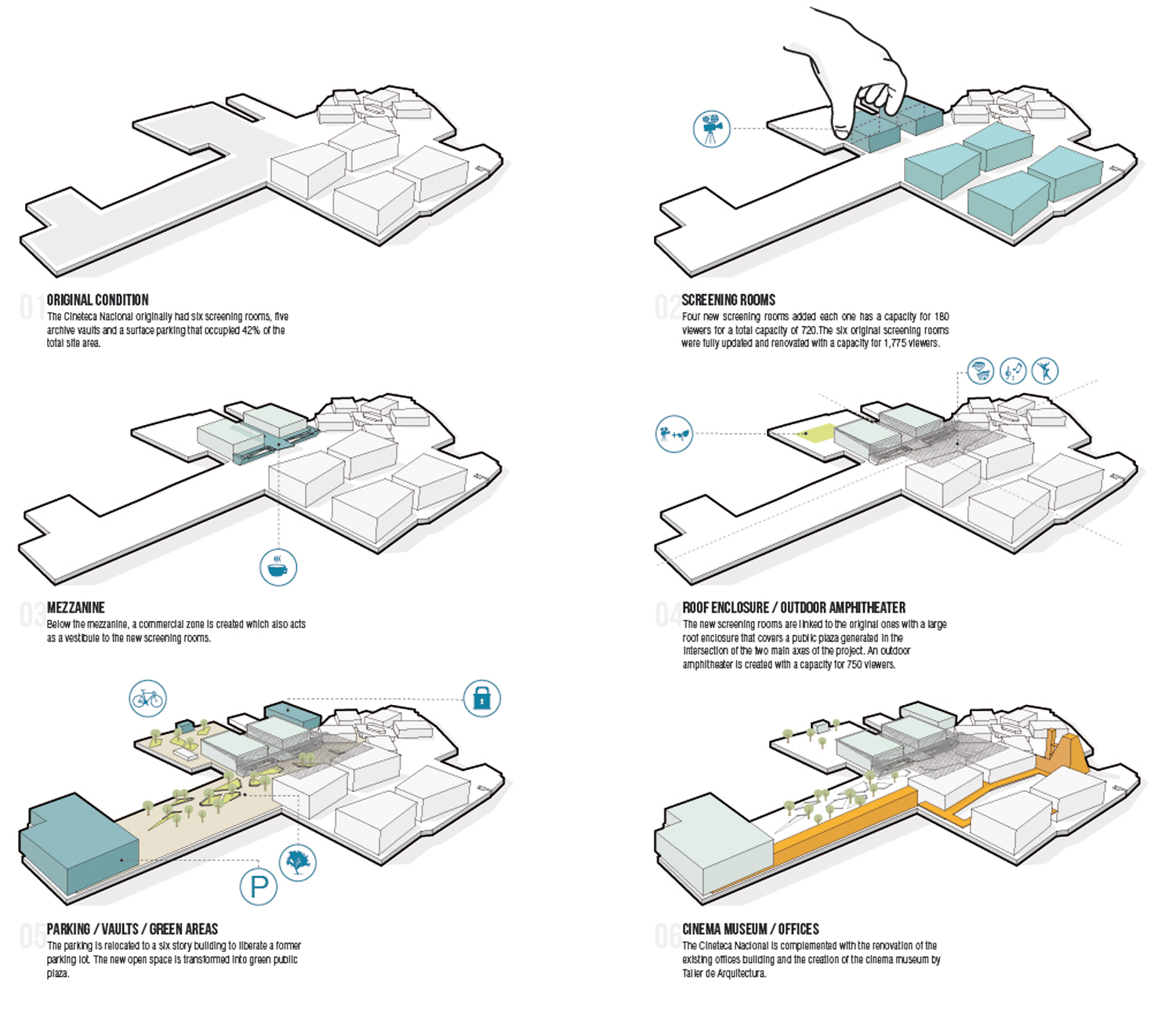
Diagram areas © Rojkind Arquitectos
The new screening rooms seat 180 each and the existing screening rooms were updated
with current technology. Overall the complex
can now seat 2,495 visitors in indoor theaters.
The outdoor amphitheater has a 750-person
capacity. Two new film vaults were also added to
the site, increasing Cineteca’s archive capacity
by 50,000 reels of film. Parking capacity was
also increased by 25% to a total of 528 cars
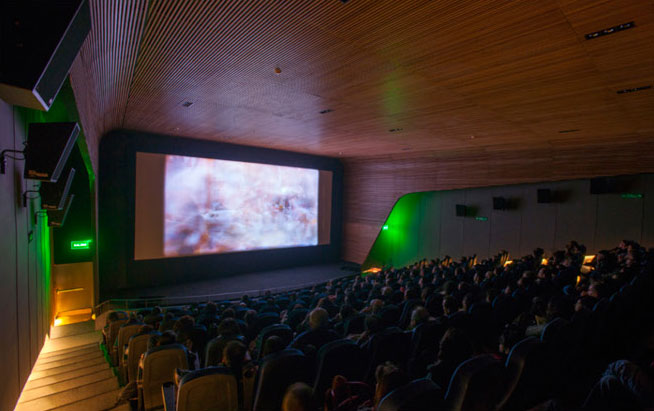
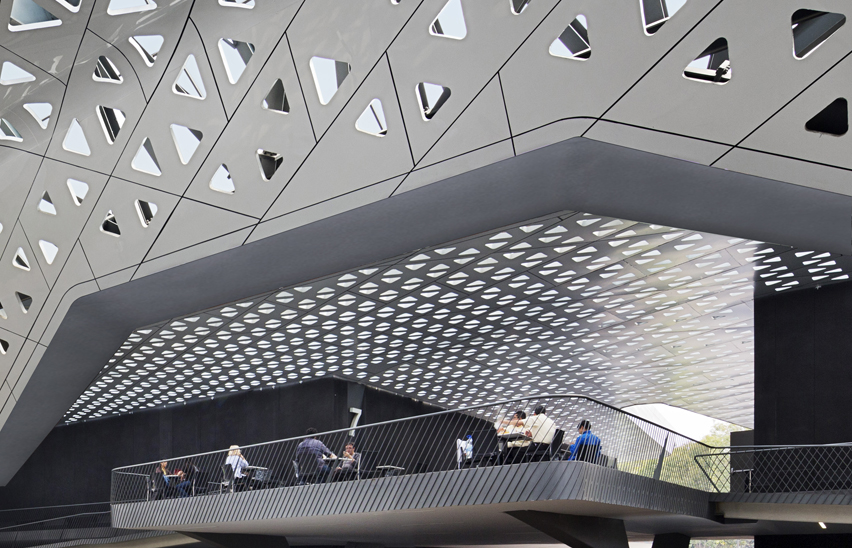
Photo © Jaime Navarro Courtesy of Rojkind Arquitectos
The thousands of people that use the grounds everyday now find welcoming unrestricted public space: commuters still walk back and forth across the campus in the morning and
evening, medical staff from a nearby hospital stop by to eat their lunches at noon, students
hang out at the park in the afternoon, and moviegoers attend free outdoor events in the
evening. The added amenities have turned the campus into a favorite gathering space not only for moviegoers but also for Xoco residents and
workers who have appropriated the space as if it were their backyard.

bloco.b

monky_garcia

davidperez_g

el_john_rizzo

sbrianhez

xock88

noel.omar

alt.juancarlos

erag6

okeyjose

mabearce

erag6

bloco.b

noel.omar

monky_garcia

alt.juancarlos

davidperez_g

erag6

el_john_rizzo

okeyjose

sbrianhez

mabearce

xock88

erag6